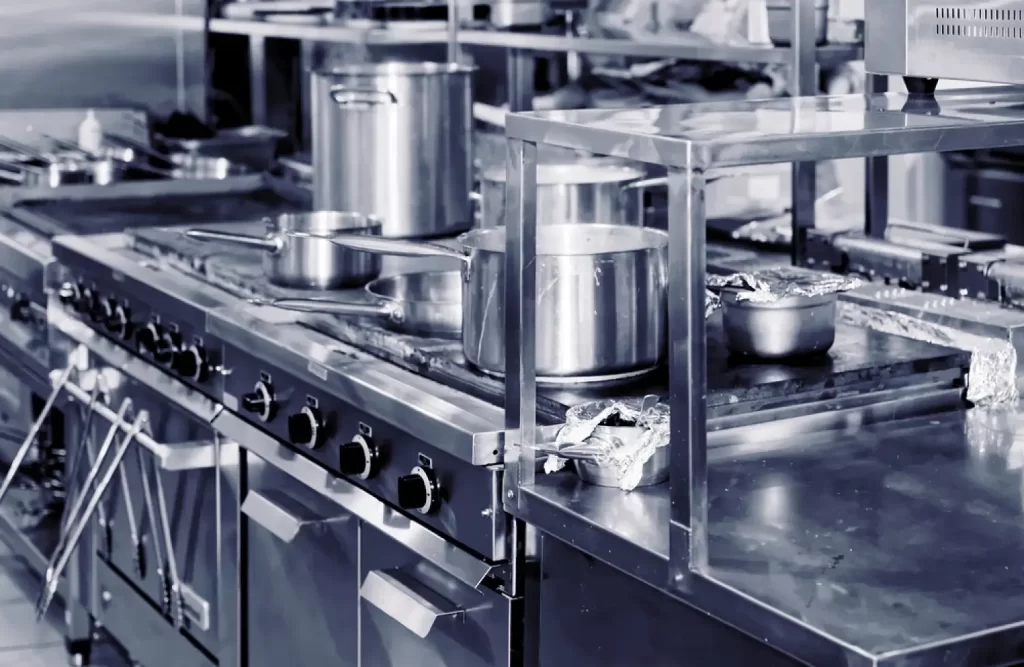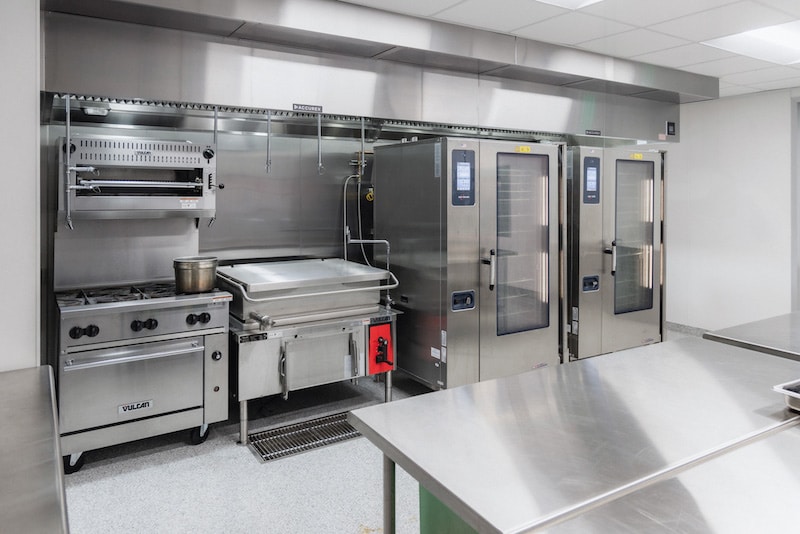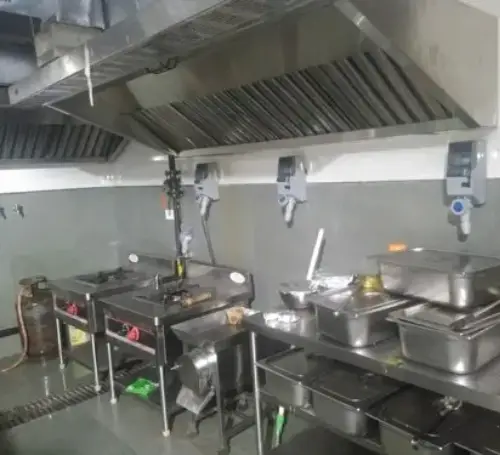Setting up a restaurant requires careful planning, especially when it comes to choosing the right commercial kitchen equipment. The efficiency of a restaurant kitchen directly impacts food quality, service speed, and customer satisfaction. Several factors, such as menu type, budget, space availability, and energy efficiency, should be considered when selecting kitchen appliances.
Essential Cooking Equipment
A restaurant kitchen relies on various cooking appliances to prepare meals efficiently. Some of the essential cooking equipment include:
- Ranges & Ovens – Gas, electric, convection ovens, and combi-ovens for baking, roasting, and broiling.
- Grills & Griddles – Perfect for grilling meats, vegetables, and sandwiches.
- Deep Fryers – Used for frying crispy foods such as fries, chicken, and seafood.
- Steamers & Broilers – Useful for steaming vegetables and broiling meats while preserving nutrients.
Food Preparation Equipment
Proper food preparation requires reliable kitchen tools that ensure efficiency and consistency:
- Cutting Boards & Chef’s Knives – Essential for chopping and slicing ingredients.
- Food Processors – Includes blenders, choppers, and slicers for quick ingredient preparation.
- Mixers – Stand mixers and dough mixers for preparing batter, dough, and sauces.
- Dough Sheeters & Pasta Makers – Crucial for bakeries, pizzerias, and Italian restaurants.
Refrigeration & Storage Equipment
Maintaining proper food storage is essential to keep ingredients fresh and safe:
- Commercial Refrigerators & Freezers – Prevents spoilage and maintains food safety.
- Walk-in Coolers & Freezers – Suitable for bulk storage of perishable items.
- Ice Machines – Necessary for beverages and food preservation.
- Dry Storage Racks & Shelving Units – Organizes non-perishable items and kitchen essentials.
Dishwashing & Cleaning Equipment
Maintaining a hygienic kitchen is critical for food safety and compliance:
- Commercial Dishwashers – Available in high-temperature and low-temperature options for quick cleaning.
- Sinks – Three-compartment sinks, prep sinks, and handwashing stations for proper sanitation.
- Waste Disposal & Recycling Bins – Helps maintain cleanliness and environmental responsibility.
- Grease Traps & Hood Ventilation Systems – Ensure proper air circulation and grease management.
Serving & Holding Equipment
To ensure that food is served at the right temperature and condition, restaurants need:
- Hot Holding Cabinets & Food Warmers – These keep food at a safe serving temperature.
- Cold Holding Units & Salad Bars – Stores perishable foods like salads, desserts, and cold appetizers.
- Serving Stations & Buffet Equipment – Essential for self-service and banquet-style dining.
Read More: Essential Equipment Checklist for Launching a Successful Café | PS Hospitality Services
Beverage Equipment
A well-equipped beverage station enhances the dining experience:
- Coffee Machines & Espresso Makers – Ideal for serving high-quality coffee and specialty drinks.
- Juicers & Blenders – These are Used for preparing fresh juices and smoothies.
- Soda Dispensers & Ice Makers – Ensure a consistent supply of cold beverages.
Specialty Equipment (Based on Cuisine)
Different cuisine types may require specialized kitchen equipment:
- Pizza Ovens – Includes wood-fired, conveyor, and deck ovens for pizzerias.
- Sushi Refrigerators & Rice Cookers – Essential for Japanese and Asian restaurants.
- Tandoors & Woks – Crucial for Indian and Chinese cuisine.
- Smokers – Used in BBQ restaurants for slow-cooked meats.
Safety & Compliance Equipment
To meet health and safety regulations, every commercial kitchen must have:
- Fire Suppression Systems – Prevents fire hazards in high-heat cooking areas.
- First Aid Kits & Safety Signage – Essential for staff safety and emergency preparedness.
- Thermometers & Food Safety Tools – Ensure food is stored and cooked at safe temperatures.
Conclusion
Investing in high-quality commercial kitchen equipment is vital for the success of a restaurant. The right kitchen setup improves efficiency, maintains food safety, and enhances customer satisfaction. By carefully selecting essential appliances, restaurant owners can ensure smooth operations and long-term profitability.





